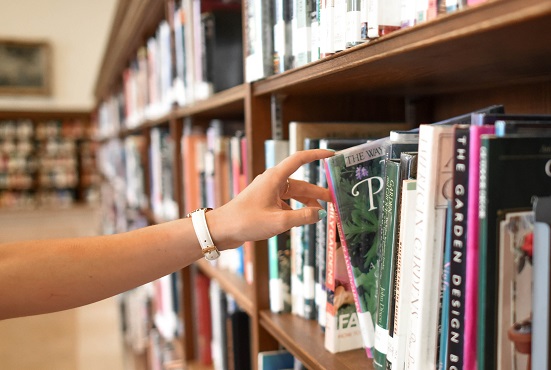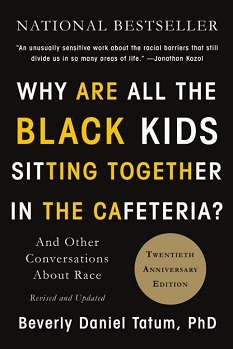
By Christina Chang
For me books are about ideas that lead me to other books of ideas, which then inform, develop and amplify the ideas of the original book, and so on and so forth--it's a rabbit hole in the best sense of that term! In this uneasy and extended reality, a rabbit hole I happily dive down, head first, and what has kept me seeing straight and maintaining perspective. So diving down...
What book do you recommend and why?
Why are all the Black Kids Sitting Together in the Cafeteria? by Beverly Daniel Tatum was written in 1997* but is still as fresh and as relevant today. If I were only allowed one book on race in America, this is the one I would take with me to the desert island. Dr. Tatum was the president of Spelman College, and the acting president and dean of Mount Holyoke College, a private practice psychologist, and the mother of two boys. This highly readable and deceptively thin book goes deep into the why and the how of racism in America, as well as a practical guide to confronting your discomfort about it. Dr. Tatum lays out a framework for racial identity development, offers excellent advice on how to raise race-conscious children, provides comprehensive reading lists, and asks challenging questions to those wanting to take their own journey to greater multicultural awareness.
*The 20th anniversary edition was updated, but here I'm talking about the original 1997 version.
What was your biggest takeaway? How has this book influenced your views?
Every time I crack my dog-eared copy, I pick up a new a-ha. It's one of those books. In fact, for this review, I was thumbing through her recommended reading list, and was reminded that I need to read Derrick Bell. See? A nugget every time.
Do you have a favorite quote from the book?
How much time have you got? One of the foundational questions I ask in my class is "Why is diversity important to you?" I'll share one of Dr. Tatum's answers: "To work effectively... in a pluralistic society, it is necessary to be able to connect with people different from yourself." I'll let you marinate on that. It's a profoundly important answer.
Why is this book good to read at this particular moment, in the middle of a pandemic and widespread marches in support of Black Lives Matter?
This one, sadly, is easy to answer. The calamitous trifecta of 2020 of a pandemic disease, an economy in freefall and the continued state-sanctioned murders of black bodies in America lays bare the overwhelming, systemic racism that is baked into the bones of this country, and hums along apace.
By now, we have all seen what it means to live in an unequal, unjust society. Despite what we were told in the early days, COVID-19 has not been the great equalizer. If you are someone who doesn't understand how and why COVID has disproportionately killed black and brown Americans, and wants to understand, pick up this book.
The resulting economic disaster which harms marginalized communities far worse, has only just begun to unfold. It will get much worse. Communities of our fellow Americans will be jobless, homeless and hungry, and without immediate and overwhelming intervention, the hardest hit communities will be marginalized communities. If you want to understand why during economic hardship, black and brown communities are hit hardest and recover last (if at all), read this book.
Third, the abhorrent, nearly 9-minute video of a state-sanctioned murder of Mr. George Floyd, preceded by the murders of Mr. Manuel Ellis, Ms. Breanna Taylor, Mr. Ahmad Arbery, Mr. Tony McDade and subsequently of Mr. Elijah McClain—has shaken White America, but is not new or news to Black America. It is what Atlanta Reverend Raphael Warnock, calls “COVID-1619"—the disease of racism. If you want to understand the history of policing, police brutality and slave patrols in America, read this book.
I'll repeat: Why are all the Black Kids Sitting Together in the Cafeteria? is as relevant today as it was 20-odd years ago. Dr. Tatum is a gentle and patient truth-teller who provides incontrovertible facts, weaves in scenarios that feel familiar, and shares disarming stories about her own children and their racial identity development. Finally--and I know dominant-culture folks will love this--she provides guidance for what to do. Curious? Get this book!
Learn more about Christina Chang and her classes Race and You: For Your Consideration and How to Be an Antiracist.